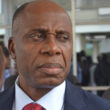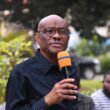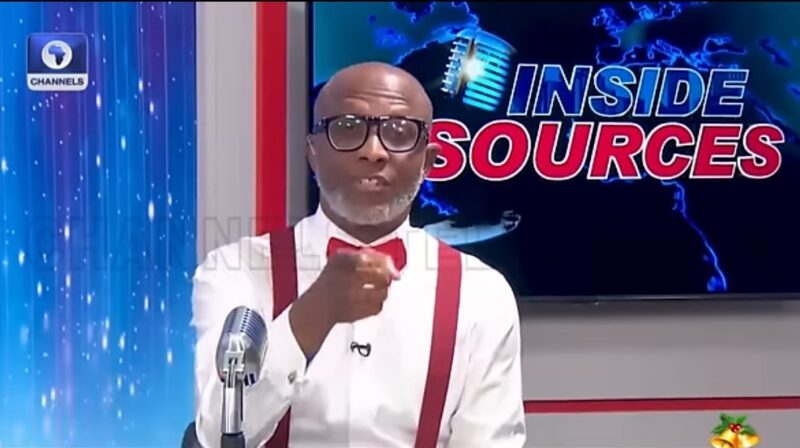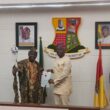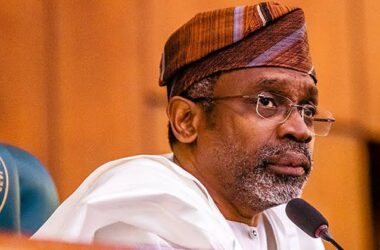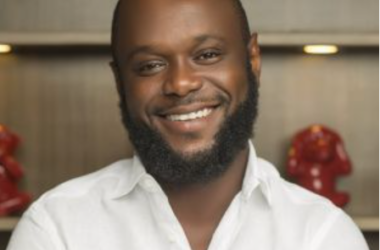Since its debut in December 2023, Inside Sources with Laolu Akande on Channels TV has become a hub for deep and critical conversations about Nigeria’s governance, socio-political challenges, and economic future.
Hosted by veteran journalist and former presidential aide Laolu Akande, the program provides a platform for thought leaders, policymakers, and activists to reflect on the nation’s current state and its trajectory toward progress.
Asked what drives the programme, its guests and themes, Akande says: “it’s about the future of the country. We bring older people to come and reflect. Then we bring younger, newer voices to come and cast a vision.”
This perhaps was why the maiden episode featured Chief Bisi Akande, former Governor of Osun State and ex-National Chairman of the All Progressives Congress. And a review of the guests in the last one year has proved the host’s objective indeed.
In that debut, Chief Bisi Akande reflected on Nigeria’s developmental struggles.
“Nigeria has been having stunted growth, and today the sources of its nutrition are in deficit. The nutrition for a good polity is infrastructure and human capacity. Both we seem not to have in the right direction. So for that reason, I don’t see Nigeria in the right direction. But with the recent attempt to change the situation, let’s hope Nigeria will be strong enough to bear the change.” Akande’s insights set the tone for the critical discussions that have followed.
The programme which started as a weekly soon become bi-weekly even before it marked its first year anniversary when the TV added to its Friday 1130am slot, a second slot on Sundays 6pm-both for an hour each.
Besides featuring high profile guests, Inside Sources has also hosted a gifted set of experts who are thoroughly objective in their analysis and many who bring insights not just from knowledge but experience in public and private sectors.
Some of those experts include Mallam Baba Yusuf who was the first Nigerian NAHCO Free Trade Zone CEO, Mr. Martins Olojo, immediate past MD&Editor in Chief of The Guardian, Mr. Dahiru Mojeed, a newspaper columnist with The Sun, who is also an On Air Personality, and Prof. Aminu Gusau, a former US professor and one time EFCC director among others.
Some of the top issues for discourse on Inside Sources is the idea of restructuring whose time seemed to have come.
Speaking on that, Professor Itse Sagay, a constitutional lawyer, weighed in on the need for structural reforms, advocating for the devolution of powers and addressing inequities in resource allocation.
In a similar vein, Chief Edwin Clark, an elder statesman and leader of the Pan Niger Delta Forum (PANDEF), has also spoken on this topic passionately on Inside Sources. He advocated for resource control and environmental justice, emphasizing the need for equitable revenue sharing to address the grievances of the Niger Delta region.
Similarly, Pa Ayo Adebanjo, the leader of Afenifere, spoke about the importance of true federalism, noting that restructuring is critical to fostering regional development and national unity. As far as Pa. Adebanjo is concerned it is restructuring or nothing and he made this clear on the programme.
Former INEC Chairman Professor Attahiru Jega, while appearing on the programme went a little further. He not only critiqued Nigeria’s federal structure and economic policies, the former university don also called for an urgent reset of the current structure of the Nigerian state.
“The structure of the Federation leaves much to be desired and needs to be improved upon. If you compare Nigeria as a federation with others in the world, you can see remarkable differences that, if not addressed, will continue to push us toward identity politics and increased mutual suspicions and undermine governance,” he noted.
Jega then advocated for the independence of thought by leaders of the country away from the mindset of international financial institutions, stating, “It must be what you think is right for the development of the country, rather than just yielding to the pressure and arm-twisting by the World Bank and IMF.”
Younger and more radical views have also been pushed out on Inside Sources.
For instance Rights activist and Peter Obi supporter Aisha Yesufu called for youth participation in governance, urging young Nigerians to challenge systemic corruption and demand accountability.
In a dramatic appearance on the show with Omoyele Sowore, activist and publisher of Sahara Reporters on the same edition, Yesufu highlighted the power of grassroots movements to drive meaningful change.
In that edition in the earlier months of Inside Sources, Sowore also submitted that the limitations of the current political system are impeding Nigeria’s future.
“The beautiful thing about democracy is that it allows for multiple choices. I don’t think we have multiple parties; however, I think we need to have a law that allows for independent candidates so that people who don’t want to be part of the shenanigans of those parties will be able to run.” Sowore stated.
By far one of the loudest critic of the Nigerian judiciary today has also been featured on the programme. Professor Chidi Odinkalu, former Chairman of the National Human Rights Commission, in his appearance delved into human rights issues and governance gaps, calling for inclusivity and social justice to bridge the growing divide between the government and the people.
Not to be one sided, the host, Mr. Akande has also reached out to key officials of government, especially from the Federal Government.
For instance, Mr. Bayo Onanuga, spokesman to President Bola Tinubu has been featured.
During his appearance, Onanuga emphasized the need for proactive governance at the state level.
“In this country, maybe because we’ve had so many years of military rule, our attention seems only focused on the federal government. We cannot continue on this level with such a mindset. If we really want to take a big leap in our country, the sub-nationals must really wake up,” he stated.
Onanuga also championed the administration’s goal of achieving a diversified trillion-dollar economy.
In the My Take segment of the show, the segment that normally opens the show, Akande often take bold stance on burning national issues. His occasional Who Will Tell the President, which calls out the President has gained traction and often gets shared in short videos on social media & WhatsApp.
But what stands the show out is the unusual depth that Akande brings to the interview being a journalist who has seen governance and politics from the inside.
In several editions, for instance, he has taken on State Governors, federal lawmakers and ministers, calling them to task.
For instance he asked when dissecting Governors’ request via NEC for the president to withdraw the tax reform bills in October when he said:
“How can a Senator ask for a bill to be withdrawn from the National Assembly and sent to the Governors so that it can be reworked by the Governors and then according to the Senator passed by the Senate within 24hours? Senator, if we should do that it means law-making has been outsourced to the Govs. Should we then close down the Senate?”
In another edition, he said that partisan alliances won’t resolve Nigeria’s deep-rooted challenges when rumours of some former leaders-such as former President Olusegun Obasanjo’s name was linked to those who are against the incumbent and were gathering ahead of the 2027 elections became rife.
The programme has consistently engaged its guests with a central question: Is Nigeria on the right path to greatness? Each episode unpacks this question, providing viewers with thought-provoking insights and actionable solutions for the country’s progress.
With its rich discussions and diverse array of guests, Inside Sources with Laolu Akande has become an indispensable platform for shaping national discourse.
The program inspires informed dialogue, fostering a collective reflection on Nigeria’s journey toward progress and greatness.


